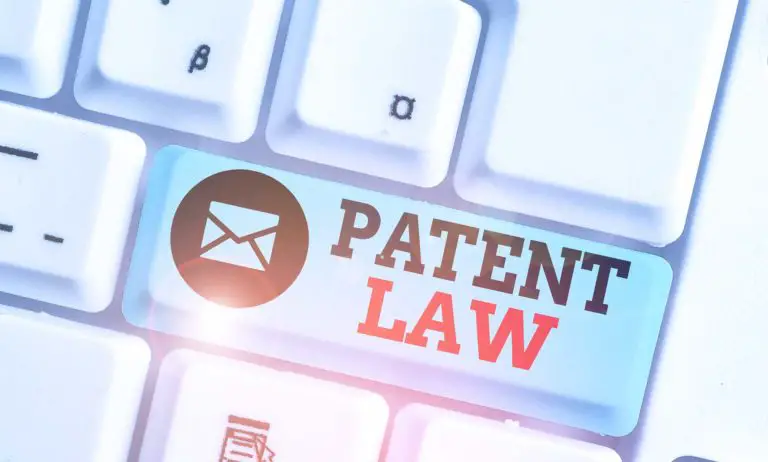Why Do Patents Expire?
If you’ve spent the time and money to make an invention and patent it, you might be wondering: why do patents expire? Why doesn’t the USPTO (The United States Patent and Trademark Office) allow patents to last forever? Patents offer inventors intellectual property rights that last for a limited period of time. For example, utility patents last for 20 years, while design patents last for 15 years. So, why does a patent expire? We will cover this below.
Why Do Patents Expire?
Patents expire because allowing them to last for too long places a constraint on others who want to improve upon existing technology. Current patent law allows inventors to recoup their investment and profit from their invention without slowing down innovation.
There has to be a balance between protecting the rights of inventors to profit from the hard work that it took them to produce the invention and the right of the public to improve existing technology and making it more accessible to the public. Having patents that last forever keeps the price of new technology high and keeps it out of the hands of the average person.
Current patent law strikes a balance between the right of the inventor to control who uses, makes, and sells his invention and the right of the public to exploit new technology and to improve upon it.
Just imagine a world where inventors where granted unlimited monopolies over their inventions. The telephone would still have been patented and everyone who wants to design a new phone or improve upon an existing one would have to obtain the permission of the original inventor. This slows down the progression of technological advances.
Utility patents give inventors a monopoly over their invention that lasts for 20 years from the date an applicant files a utility patent application. Design patents last for 15 years from the date the patent office grants a design patent application.
So, why do inventors choose to patent their inventions? Inventors patent their inventions to stop others from copying and reproducing their inventions without their consent. Having a utility patent or design patent over an invention allows an inventor to stop others from using, making, and selling the patented invention for a limited period of time.
For utility patents, this limited period of time is 20 years and for design patents, it’s 15 years. Utility patents protect how inventions work, as well as the functional aspects of an invention. Design patents protect how an invention looks or the aesthetics or appearance of an object.
When Do Patents Expire?
Utility Patents
The answer to this question depends on what kind of patent an inventor has. Let’s start with utility patents. Utility patents can expire for two reasons. The first reason a utility patent expires is if the patent term has expired. Said differently, a utility patent expires if 20 years have passed since the inventor filed a patent application.
Once a utility patent expires, the invention falls into the public domain, allowing anyone to use, make, and sell the patent invention without having to obtain the express consent of the patent holder. The second reason a utility patent expires if the patent holder does not pay maintenance fees.
Maintenance fees are fees that are required to be paid by a utility patent holder at 3.5, 7.5, and 11.5 years to keep the patent as granted. If a utility patent holder fails to pay these fees, the patent expires and falls into the public domain.
Design Patents
Design patents expire after 15 years pass since the patent office granted the design patent. Design patents can only expire for one reason and that reason is the patent term has expired, meaning that 15 years have passed since the patent office has granted an inventor’s design patent application. In the United States, a design patent cannot expire for non-payment of maintenance fees because maintenance fees are not required for design patents, they are only required for utility patents.
Once a design patent expires, the design falls into the public domain, meaning the inventor can no longer stop others from using, making, and selling the patented design under patent law. That said, don’t rush to use the once patented design because the design may still be protected under other intellectual property laws, such as copyright law.
What Happens When a Patent on an Invention Expires?
When a patent on an invention expires, the invention falls into the public domaining, meaning that an inventor loses the right to stop others from using, making, and selling the patent invention. The public can basically, use, make, and sell the once patented invention without having to obtain the consent of the patent holder to do so.
When a patent expires, the market is often flooded with copies of the once patented product. That said, just because a patent expires does not mean that the original inventor has to stop making his product, he can continue to do so, but he should expect some competition from others who are now able to make the product without having to worry about the inventor stopping them from doing so.
Can a Patent be Renewed After it Expires?
Whether an inventor can renew a patent after it expires depends on why the patent expired. For example, if a utility patent expires for nonpayment of maintenance fees, a patent holder may be able to renew the patent by paying the outstanding maintenance fees that are due on the patent. However, if a utility patent expires because the patent term has ended, a patent holder cannot renew the patent for the expiration of the patent term. That said, design patents can only expire if the patent term has expired. Once a design patent expires, it cannot be renewed.
What Can an Inventor Do After His Patent Expires?
If an inventor knows that his patent is about to expire or has already expired, he can try to patent an improvement to an invention. The patent office allows inventors to patent improvements to existing inventions. As such, if the inventor has figured out a new and nonobvious way to improve his current invention, he can seek to patent the improvement to his invention by preparing a new patent application and filing it with the USPTO.
Can an Inventor Re-patent an Existing Patent?
Unfortunately, an inventor is not permitted to re-patent an existing patent. This is so because once a patent expires, the invention falls into the public domain, becoming prior art. Prior art prohibits inventors from patenting the same invention. So, if you have a patent on an invention and that patent is expired, you cannot renew it. That said, if you figure out a way to improve the invention, you may be able to obtain an improvement patent on the invention provided that your improvement qualifies for a patent.
How to Check if a Patent has Expired?
Anyone can check if a patent has expired by heading over to the USPTO website and heading over to the patent section. You will see a tool that allows you to conduct a search of the patent database. Enter the number of the patent or the name of the patent that you want to check on and you’ll be able to retrieve all of the information about the patent, including the filing date of the patent application, the grant dates, as well as the expiration date of the patent.
Why Does a Patent Expire?
By now, you should know that a patent expires for one of two reasons. Either the patent term has expired or the patent has expired for nonpayment of maintenance fees. Once the patent term expires, the patent cannot be renewed and falls in the public domain. Patent law wants inventors to be able to recoup their expenses for developing the invention, as well as allowing them to profit for a limited time. But, it does not want inventors to restrict others from using the patented technology for too long, as such patents expire. There are other reasons why patents expire that we covered in the article above, so if you’re interested in learning more read the section covering why do patents expire. If you have any general questions or comments, please feel free to leave them in the comments section below.







